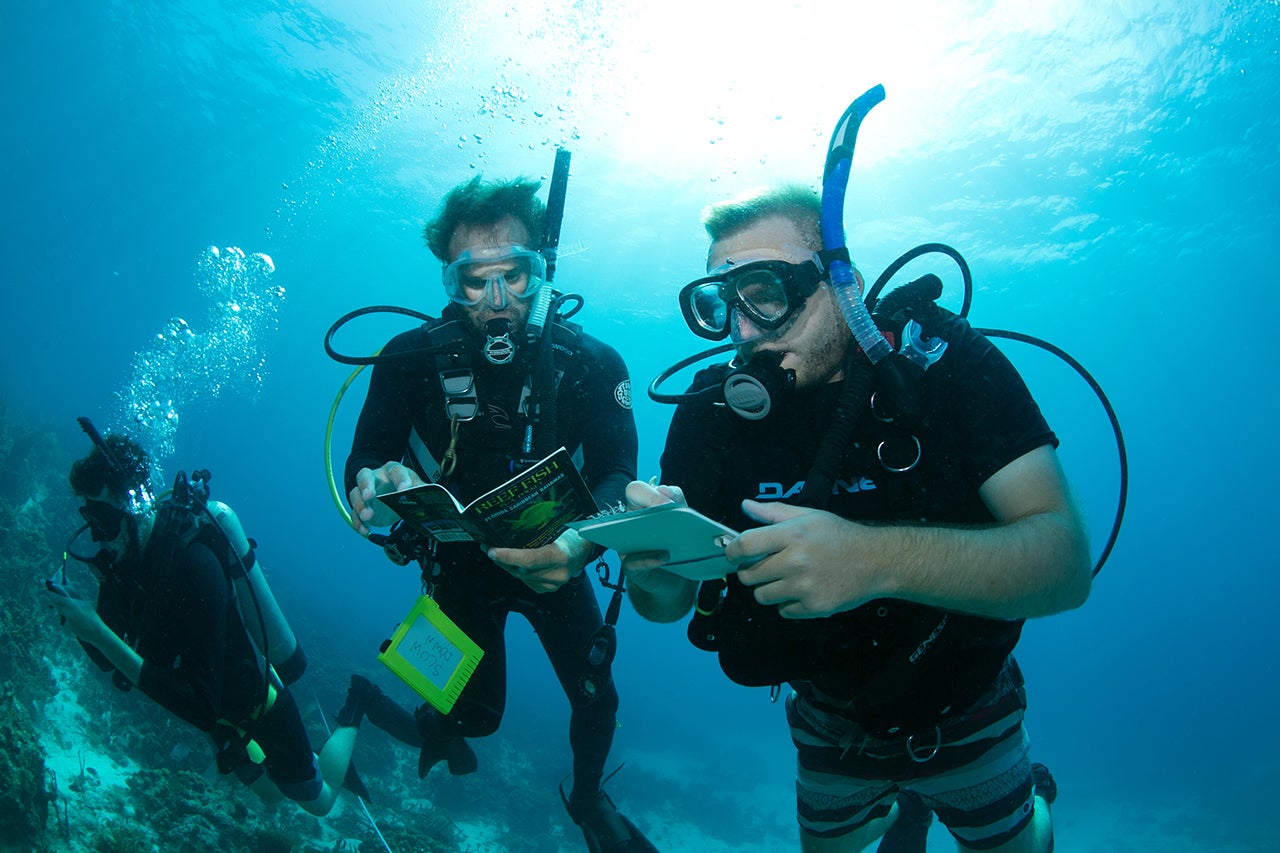What better way to study marine science than on the water?
That’s what adjunct biology professor Russell Day ’03 (M.S.) thought when he imagined the Marine Science and Nautical Training Academy, or MANTA. As part of the program, students sail the British Virgin Islands in search of exotic aquatic life in the Caribbean Sea.
Day, who is also a full-time research biologist at the National Institute of Standards and Technology at the Hollings Marine Laboratory, shuttles students through two weeks of adventure on a 58-foot Voyage catamaran sailboat, which he calls his “floating classroom.”
“The catalyst for starting MANTA and creating this study-abroad program was the realization that a sailing research vessel is an effective, green and inspirational platform from which to teach marine science and explore and study the oceans,” says Day. “I grew up on the water, but I really fell in love with sailing after college on a voyage with my uncle that ended with us getting shipwrecked in Cuba. The sense of ocean exploration from that voyage stuck with me through graduate school and into my career as a research scientist.”
Day wants to bring that same sense of exploration to his students, and this program became the perfect way to realize that goal.
This summer, Day’s students studied a variety of topics related to the Caribbean coral reef ecosystem. They learned how to identify reef fish, corals, invertebrates and algae. They studied underwater field survey methods, investigated coral reef ecology and researched some of the environmental stressors that threaten these marine ecosystems. Teams of students conducted independent research, scuba diving amid these aquatic landscapes to study topics such as fish behavior and feeding preference or coral disease. After collecting and analyzing data, the students shared their findings.
The lessons learned aboard the floating classroom are multifaceted. “One thing I think is difficult in this program is balancing the contrasting positive and negative perspectives about coral reefs that we experience,” Day says. “On one hand, we are reveling in the discovery and amazement of all the wonderful things we see on the reefs. On the other hand, the students learn the sad story that coral reefs are in peril, and see firsthand the difference between pristine and degraded reefs.”
The perspective was eye opening for senior Sara Dunagin. “I got to experience things I never thought I would be able to experience, and learn so much – not only course materials but diving and sailing lessons, too,” the biology major says.
To students who are unsure if this program is right for them, Day would tell them not to be afraid to go outside their comfort zone: “I have had some students who already feel completely at home in and on the water, and others that have said it sounded scary but signed up because they really wanted to challenge themselves. It’s a great opportunity
to grow not only academically, but as
a person.”
The lesson is simple: Adventure can bring about a sea of change, if you’re willing to go to new depths.







